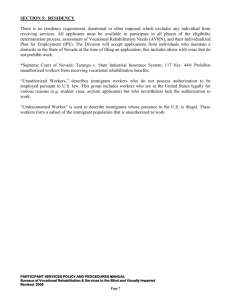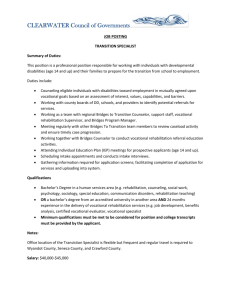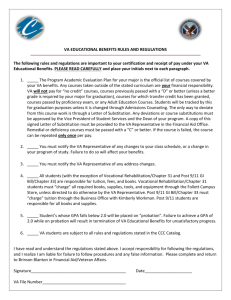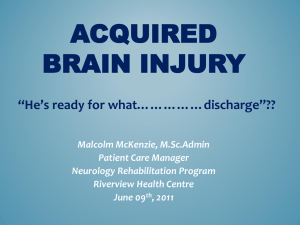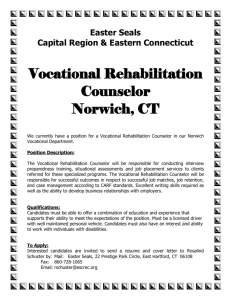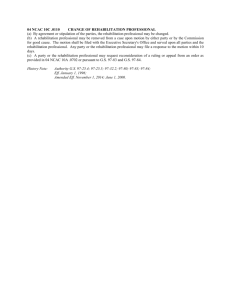B.S. Vocational Rehabilitation Mission and Objectives
advertisement
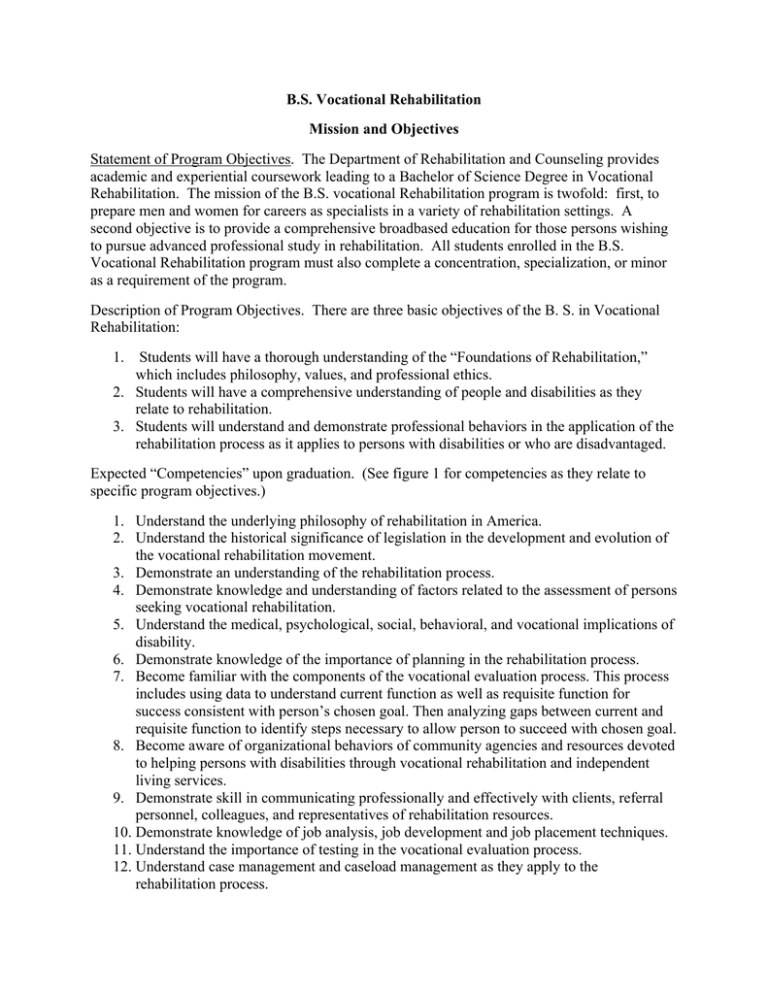
B.S. Vocational Rehabilitation Mission and Objectives Statement of Program Objectives. The Department of Rehabilitation and Counseling provides academic and experiential coursework leading to a Bachelor of Science Degree in Vocational Rehabilitation. The mission of the B.S. vocational Rehabilitation program is twofold: first, to prepare men and women for careers as specialists in a variety of rehabilitation settings. A second objective is to provide a comprehensive broadbased education for those persons wishing to pursue advanced professional study in rehabilitation. All students enrolled in the B.S. Vocational Rehabilitation program must also complete a concentration, specialization, or minor as a requirement of the program. Description of Program Objectives. There are three basic objectives of the B. S. in Vocational Rehabilitation: 1. Students will have a thorough understanding of the “Foundations of Rehabilitation,” which includes philosophy, values, and professional ethics. 2. Students will have a comprehensive understanding of people and disabilities as they relate to rehabilitation. 3. Students will understand and demonstrate professional behaviors in the application of the rehabilitation process as it applies to persons with disabilities or who are disadvantaged. Expected “Competencies” upon graduation. (See figure 1 for competencies as they relate to specific program objectives.) 1. Understand the underlying philosophy of rehabilitation in America. 2. Understand the historical significance of legislation in the development and evolution of the vocational rehabilitation movement. 3. Demonstrate an understanding of the rehabilitation process. 4. Demonstrate knowledge and understanding of factors related to the assessment of persons seeking vocational rehabilitation. 5. Understand the medical, psychological, social, behavioral, and vocational implications of disability. 6. Demonstrate knowledge of the importance of planning in the rehabilitation process. 7. Become familiar with the components of the vocational evaluation process. This process includes using data to understand current function as well as requisite function for success consistent with person’s chosen goal. Then analyzing gaps between current and requisite function to identify steps necessary to allow person to succeed with chosen goal. 8. Become aware of organizational behaviors of community agencies and resources devoted to helping persons with disabilities through vocational rehabilitation and independent living services. 9. Demonstrate skill in communicating professionally and effectively with clients, referral personnel, colleagues, and representatives of rehabilitation resources. 10. Demonstrate knowledge of job analysis, job development and job placement techniques. 11. Understand the importance of testing in the vocational evaluation process. 12. Understand case management and caseload management as they apply to the rehabilitation process. 13. Understand group behaviors. 14. Operate as a team member in working with other professionals. 15. Understand how people change and how behaviors can be adjusted within a variety of environments. (Disability Adjustment) 16. Understand the current and future rehabilitation business environment. 17. Understand the needs of the diverse client population. 18. Understand elementary theories and techniques of personal and vocational counseling. 19. Understand the family’s impact on the client and the rehabilitation process. 20. Understand and promote the concept of maximizing client independence. 21. Understand the ethical and professional responsibilities of the rehabilitationist. 22. Understand the importance of advocacy and improvement in the rehabilitation process. 23. Understand the role and function of rehabilitationists.
